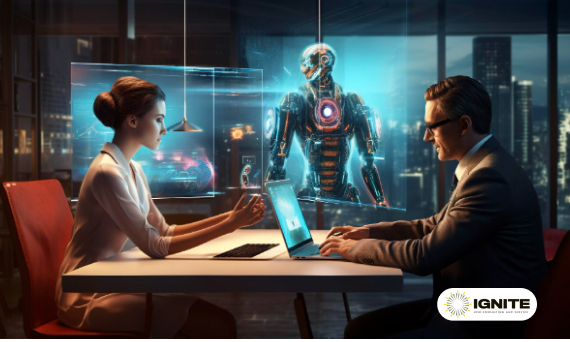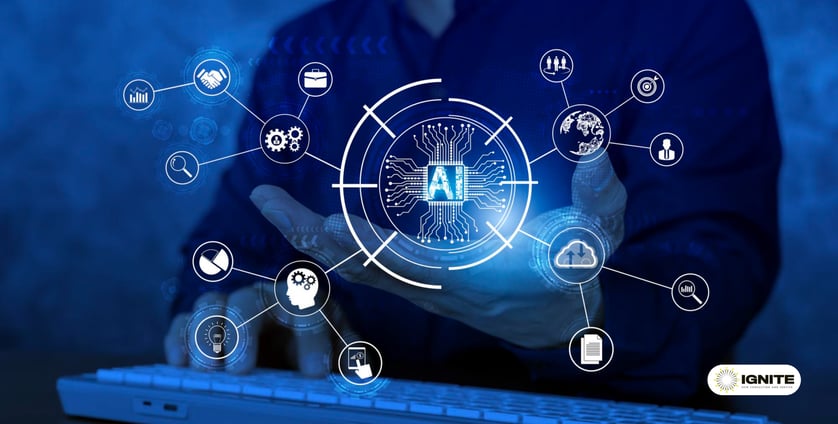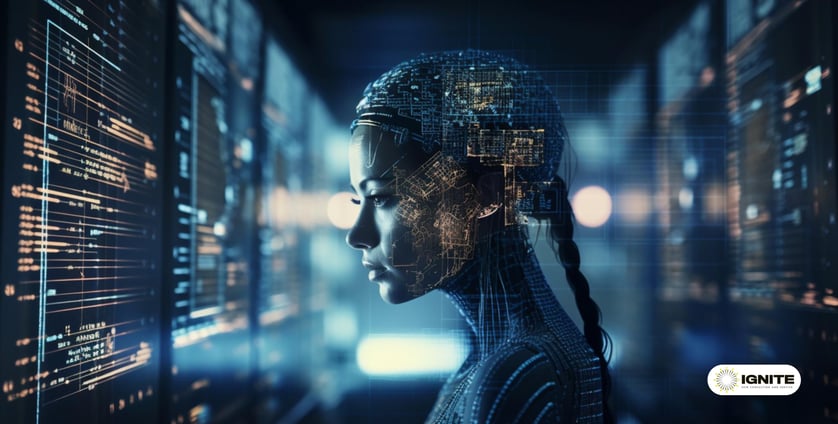
In recent years, the field of Human Resources (HR) has been undergoing a significant transformation, largely driven by the advent of Artificial Intelligence (AI). As AI continues to evolve and become more sophisticated, its impact on HR processes and decision-making is becoming increasingly profound. From recruitment and talent acquisition to performance management and employee engagement, AI is revolutionizing the way HR professionals approach their work.
In this article, we will explore the various ways in which AI is transforming HR processes and decision-making, the benefits and challenges associated with its adoption, and what the future may hold for AI in the HR industry.

One of the most significant areas where AI is making a significant impact in HR is recruitment and talent acquisition. Traditional recruitment processes can be time-consuming, labor-intensive, and prone to bias. However, with the help of AI, HR professionals can streamline the recruitment process, making it more efficient, effective, and fair.
AI-powered resume screening tools can quickly analyze vast amounts of resumes and identify the most qualified candidates based on predefined criteria. These tools can also match candidates to specific job requirements, ensuring that the right people are being considered for the right roles.
For example, companies like Ideal and Textio use AI to analyze job descriptions and candidate resumes, identifying key skills and experience that match the requirements of the role. This not only saves time but also helps to reduce bias in the recruitment process by focusing on objective criteria rather than subjective opinions.
AI-powered chatbots and virtual assistants are also being used to enhance the candidate experience during the recruitment process. These tools can answer frequently asked questions, provide information about the company and the role, and even schedule interviews.
For instance, Mya Systems offers an AI-powered chatbot that engages with candidates throughout the recruitment process, from initial screening to interview scheduling. This not only improves the candidate experience but also frees up HR professionals to focus on more strategic tasks.
AI-powered predictive analytics can also be used to identify the best candidates for a role based on historical data and past performance. By analyzing factors such as employee tenure, performance ratings, and engagement levels, AI can help HR professionals make data-driven decisions about which candidates are most likely to succeed in a given role.
For example, IBM's Watson Recruitment uses predictive analytics to identify the key attributes of successful employees and match candidates to roles based on those attributes. This helps to reduce the risk of bad hires and improve overall hiring success rates.
AI can also play a critical role in promoting diversity and inclusion in the recruitment process. By analyzing job descriptions and candidate resumes for bias and using blind hiring techniques, AI-powered tools can help to reduce the impact of unconscious bias and ensure that all candidates are given a fair chance.
For example, Unilever uses an AI-powered recruitment platform called HireVue to conduct initial candidate screenings. The platform uses a combination of video interviews and AI-powered assessments to evaluate candidates based on their skills and abilities, rather than their gender, race, or other demographic factors.

Performance management is another area where AI is having a significant impact. Traditional performance management processes can be subjective, inconsistent, and often fail to provide employees with the feedback and support they need to improve their performance.
AI-powered tools can help to address these challenges by providing employees with continuous feedback and coaching. These tools can analyze employee performance data in real-time, identifying areas where employees are excelling and areas where they may need additional support.
For example, Zugata offers an AI-powered performance management platform that provides employees with real-time feedback and coaching based on their performance data. This helps to ensure that employees are receiving the support they need to improve their performance and achieve their goals.
AI can also be used to help employees set and track their goals more effectively. By analyzing historical performance data and identifying patterns and trends, AI-powered tools can help employees set realistic and achievable goals that align with the overall objectives of the organization.
For instance, BetterWorks offers an AI-powered goal-setting and tracking platform that helps employees set and track their goals in real-time. The platform uses machine learning algorithms to analyze employee performance data and provide personalized recommendations for goal setting and achievement.
AI can also be used to make performance evaluations more objective and consistent. By analyzing employee performance data and comparing it to predefined criteria, AI-powered tools can provide HR professionals with a more accurate and unbiased assessment of employee performance.
For example, Workday offers an AI-powered performance management platform that uses machine learning algorithms to analyze employee performance data and provide HR professionals with insights and recommendations for performance evaluations.
AI can also be used to support career development and succession planning within an organization. By analyzing employee skills, experience, and performance data, AI-powered tools can help HR professionals identify high-potential employees and create targeted development plans to help them grow and advance within the company.
For example, Fuel50 offers an AI-powered career development platform that uses machine learning algorithms to match employees with career opportunities based on their skills, experience, and career goals. The platform also provides personalized development recommendations to help employees build the skills they need to advance their careers.
Employee engagement is a critical factor in the success of any organization. Engaged employees are more productive, more committed to their work, and more likely to stay with the company long-term. However, traditional employee engagement strategies can be hit-or-miss, often failing to address the unique needs and preferences of individual employees.
AI-powered tools can help to address this challenge by providing employees with personalized experiences that are tailored to their individual needs and preferences. By analyzing employee data such as job role, tenure, and past behavior, AI can help HR professionals create targeted engagement strategies that are more likely to resonate with individual employees.
For example, Peakon offers an AI-powered employee engagement platform that uses machine learning algorithms to analyze employee feedback and provide HR professionals with insights and recommendations for improving employee engagement.
AI can also be used to predict employee attrition and identify employees who may be at risk of leaving the company. By analyzing factors such as employee engagement levels, performance ratings, and job satisfaction, AI-powered tools can help HR professionals identify potential flight risks and take proactive steps to retain top talent.
For instance, Workday offers an AI-powered predictive attrition tool that analyzes employee data and provides HR professionals with insights and recommendations for reducing employee turnover.
AI can also play a critical role in supporting employee well-being and mental health. By analyzing employee data such as work patterns, communication styles, and sentiment analysis, AI-powered tools can help HR professionals identify employees who may be struggling with stress, burnout, or mental health issues and provide them with targeted support and resources.
For example, Ginger offers an AI-powered mental health platform that provides employees with on-demand access to mental health coaching and therapy. The platform uses machine learning algorithms to analyze employee data and provide personalized recommendations for mental health support.
While the benefits of AI in HR are significant, there are also some challenges and considerations that HR professionals need to be aware of when implementing AI-powered tools and strategies.
One of the biggest concerns around the use of AI in HR is the potential for bias and unfairness. If the data used to train AI algorithms is biased, the resulting decisions and recommendations may also be biased. HR professionals need to be aware of this risk and take steps to ensure that the data used to train AI algorithms is diverse, representative, and free from bias.
Another concern around the use of AI in HR is privacy and security. HR data is highly sensitive and confidential, and HR professionals need to ensure that any AI-powered tools and platforms they use are secure and compliant with relevant privacy regulations such as GDPR and CCPA.
Finally, HR professionals need to consider the ethical implications of using AI in HR processes and decision-making. It is important to be transparent about the use of AI and to ensure that employees understand how their data is being used and how decisions are being made.

As AI continues to evolve and become more sophisticated, its impact on HR processes and decision-making is only going to become more significant. In the future, we can expect to see even more advanced AI-powered tools and platforms that will help HR professionals to make more data-driven decisions, provide more personalized employee experiences, and drive better business outcomes.
Some of the key trends and developments we can expect to see in the future of AI in HR include:
The impact of AI on HR processes and decision-making is already significant, and it is only going to become more profound in the years to come. From recruitment and talent acquisition to performance management and employee engagement, AI is revolutionizing the way HR professionals approach their work.
While there are certainly challenges and considerations associated with the adoption of AI in HR, the benefits are clear. By leveraging the power of AI, HR professionals can make more data-driven decisions, provide more personalized employee experiences, and drive better business outcomes.
As we look to the future, it is clear that AI will play an increasingly important role in the field of HR. HR professionals who embrace this technology and leverage its potential will be well-positioned to succeed in the years to come. However, it is also important to approach the use of AI in HR with a critical eye, and to ensure that the technology is being used in an ethical, transparent, and fair manner.
Ultimately, the success of AI in HR will depend on the ability of HR professionals to strike the right balance between leveraging the power of the technology and maintaining a human touch in their interactions with employees. By doing so, they can create a more engaged, productive, and successful workforce, and help their organizations thrive in an increasingly competitive and rapidly changing business landscape.


